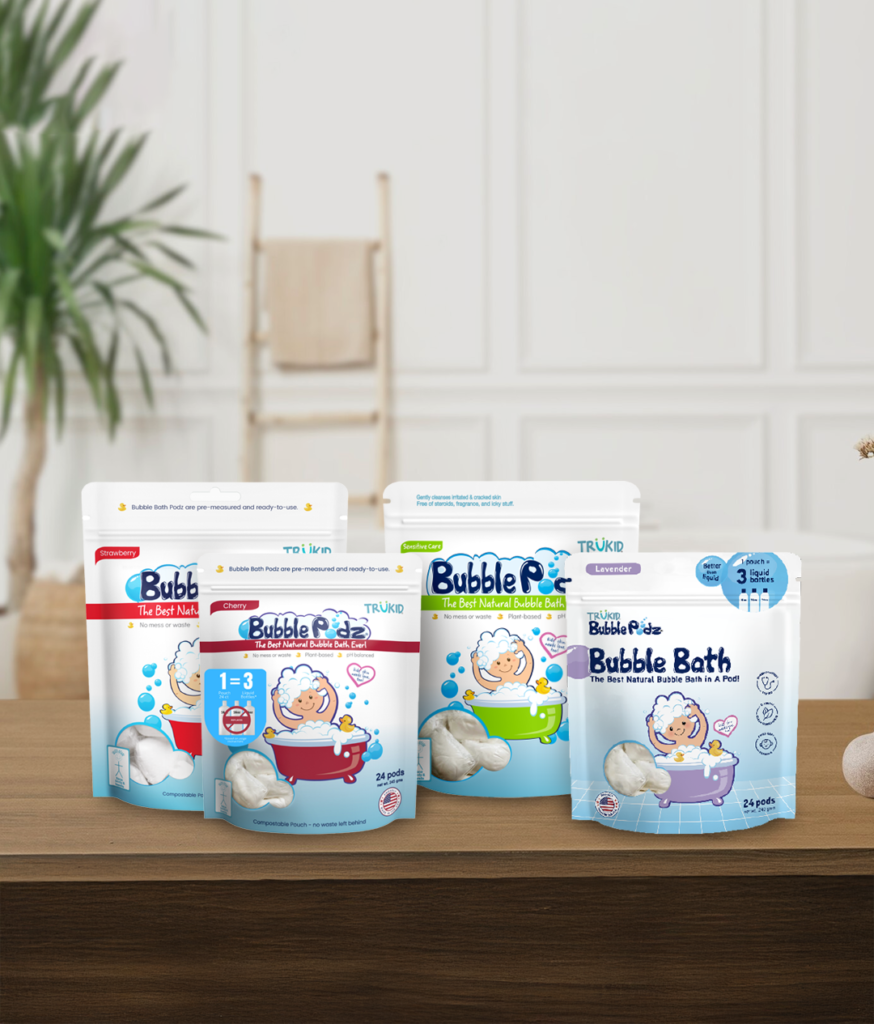If your baby or child has been diagnosed with eczema, your first step should be to learn more about the causes and triggers that will lead to an outbreak. Once you know more about what brings on your little one’s eczema, the better you’ll be able to prevent it moving forward.
In order to help parents and family members figure out that perfect storm of environmental factors that lead to an outbreak, we’ve put together a guide of common causes of eczema in children. With this list, you can start to become more aware of the factors in your home or in your daily life that may trigger a breakout, and take steps to minimize exposure.
At first, this may seem like a daunting task, especially if your child’s eczema has been persistent or it seems like there are many factors triggering the outbreaks. Don’t get discouraged! By simply arming yourself with more information, you’re already well on your way to creating a more comfortable environment for your child.
What Causes Eczema?
The frustrating answer is that there is no one root cause. Most scientists point to a combination of inherited genes and external triggers, which means that some babies are more prone to getting it, and will start to show symptoms when exposed to a particular environment.
To get even more technical about it, eczema is the result of the skin not being able to produce the fat cells that are responsible for two important jobs: protecting the body from the outside world, and retaining appropriate levels of moisture. The result is dry, irritated skin that reacts poorly to a number of outside intruders. In infants, this is most common on the exposed skin of the face.
In regards to the hereditary element, scientists have found that if you or a family member has dealt with eczema, there’s a higher likelihood of your child having it as well. Also, if mom has allergies or asthma, the likelihood increases again.
Triggers of Eczema
Now that we’ve explained some of the root causes of eczema in infants, we can move onto the more proactive work of maintenance and prevention of outbreaks. And, by learning more about potential triggers and closely monitoring your child’s unique situation, you’ll be able to create a plan to minimize exposure to irritants.
Stress
Most websites that point to stress-induced eczema are targeted at adults. After all, what stress could an infant possibly have? Well, at this stage, anything from the introduction of new people, animals, or settings can trigger a stress-reaction in an infant. The body’s reaction to these new stressors is to flush, a normal response in which blood begins to circulate more freely towards the skin, particularly in the face.
For most babies, once the threat passes, the skin goes back to normal; however, for infants with eczema, the flush can lead to an outbreak. And while you obviously can’t shelter your baby from these stressful situations, you can be more mindful about the way that new elements are introduced to your baby, such as exposing new things in increments. Also, make sure to soothe your little one in the moment to offset the stress.
Heat
It’s not surprising heat-induced eczema symptoms are common in babies. They get swaddled, held, bathed in warm baths, etc. And clearly, we don’t expect you to stop doing these things to prevent an outbreak. But you can minimize the effects by lowering the temperature of baths slightly and dressing your baby in airy, comfortable clothing. A cooler (not cold!) bath will sooth the symptoms and prevent sweat, while cotton, looser-fitting clothing with prevent rubbing and trapped heat.
Harsh Ingredients
Certain harsh ingredients in soaps, lotions, and detergents may cause an eczema outbreak. The number one advice from most health professionals is to limit exposure to fragranced, strong products.
Even while bathing, it’s advised that you apply gentle soap or eczema shampoo only at the very end of the bath so that your little one isn’t sitting in the suds. TruKid’s Easy Eczema Soothing Face & Body Wash is perfect for little one’s suffering with Eczema. TruKid’s unique face & body wash is naturally free of steroids, gluten, and fragrances to gently cleanse irritated skin.
Lotion is one of those double-edged swords which is both necessary but potentially irritating. Make sure you’re using a moisturizer that is made specifically for infants with eczema. For example, TruKid’s Easy Eczema Therapy Cream is specifically made for eczema sufferers and provides comfort for even the most sensitive of skin.
Finally, when choosing a laundry detergent, keep an eye out for anything that has fragrance or harsh chemicals. You want something that is neutral and won’t produce skin irritation.
To sum it up…
Now that you know that causes and common triggers of eczema in infants, we hope the you feel more empowered to create a treatment plan that works for you baby. Because, while the root causes of eczema may be beyond your control, there is a lot that you can do avoid triggers and make your little one more comfortable.
Newsletter
Sign Up For Our Newsletter & Get the Latest Information
This article is intended solely for informational purposes and should not be considered a source of medical advice. The information presented in this article is not a replacement for, nor should it be relied upon as, professional medical guidance. Every individual’s health and medical circumstances are unique. What works or is suitable for one person may not be the same for another. Any decisions related to your health should be made with consideration of your specific health condition, medical history, and the guidance of your healthcare professional.
